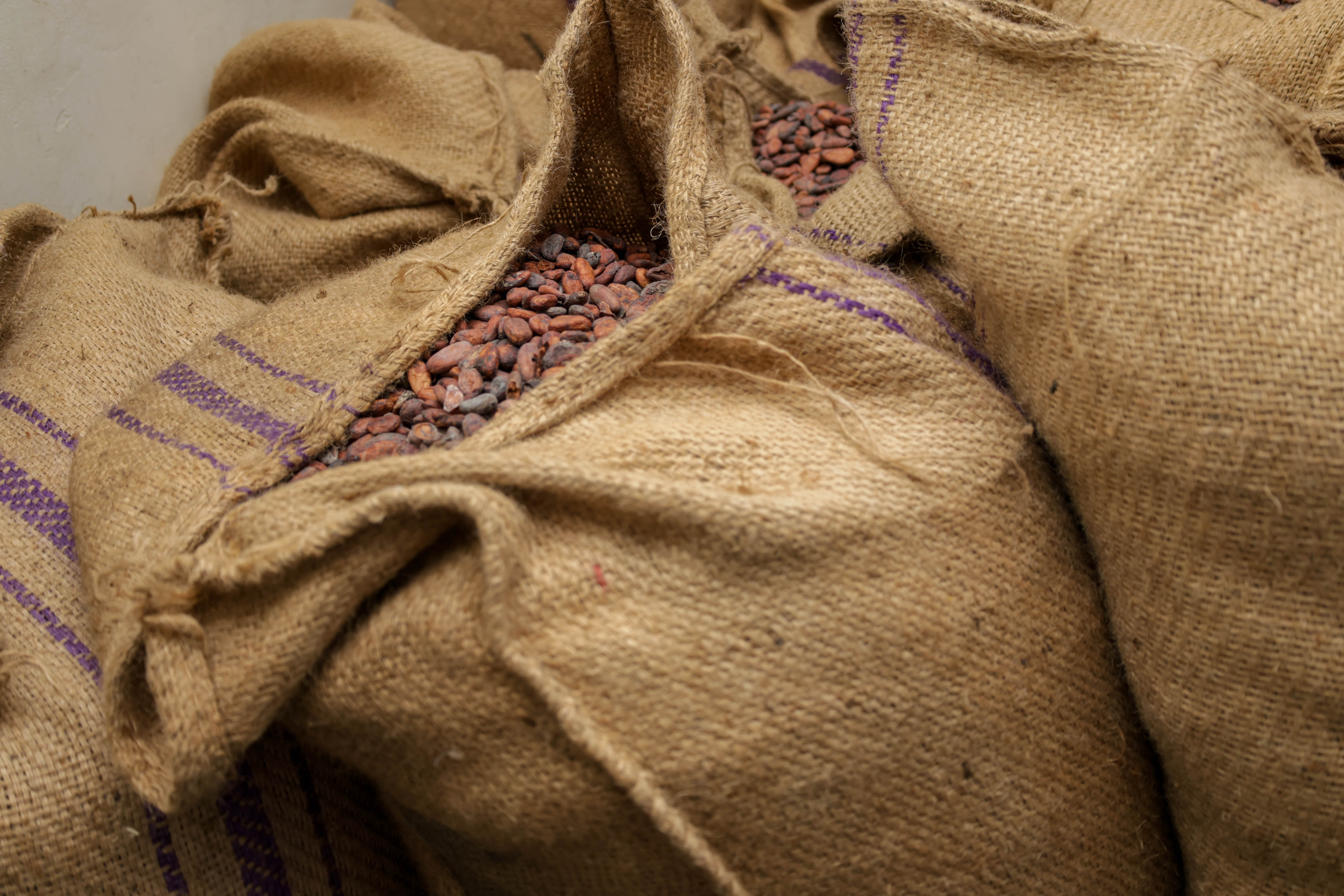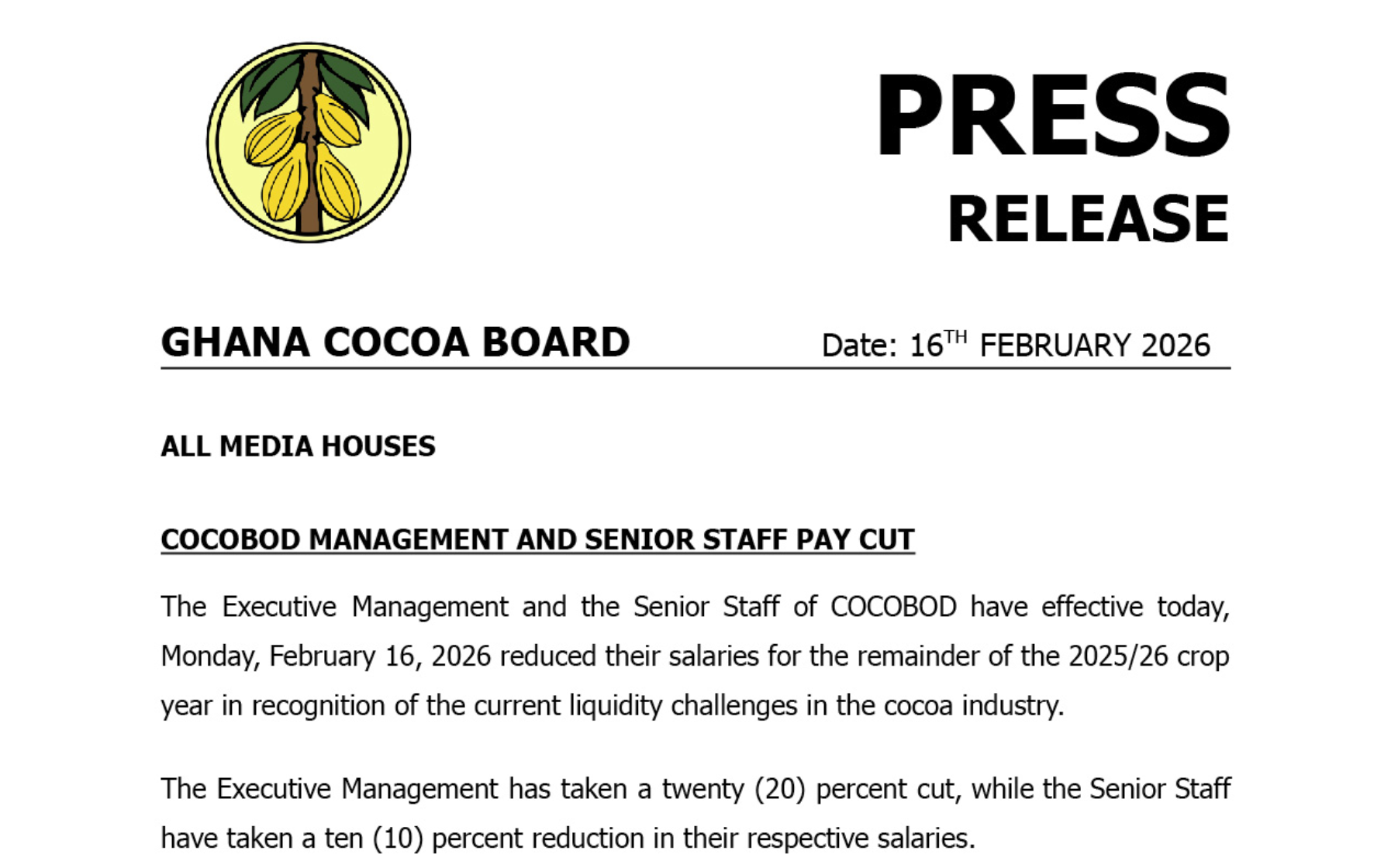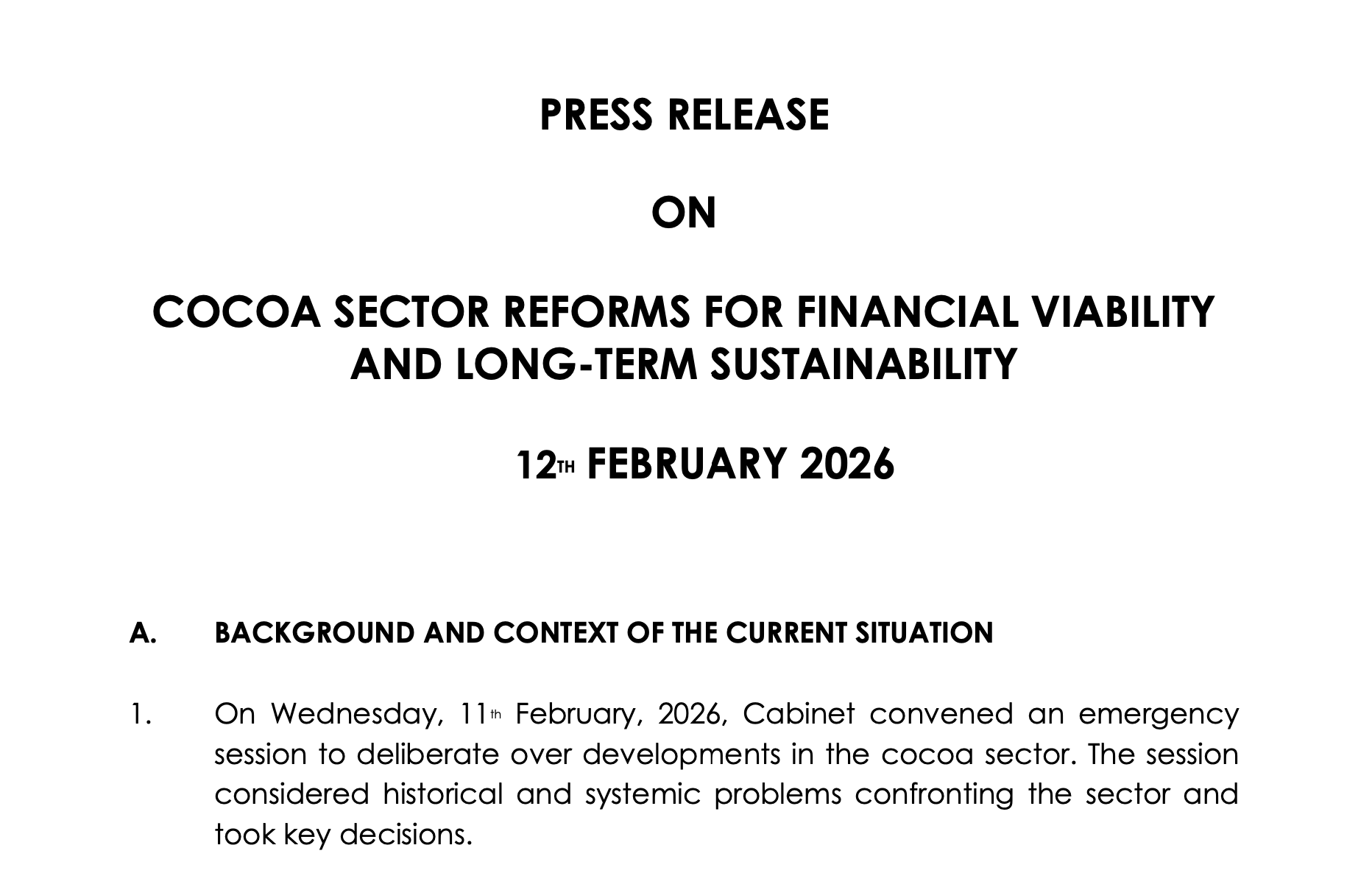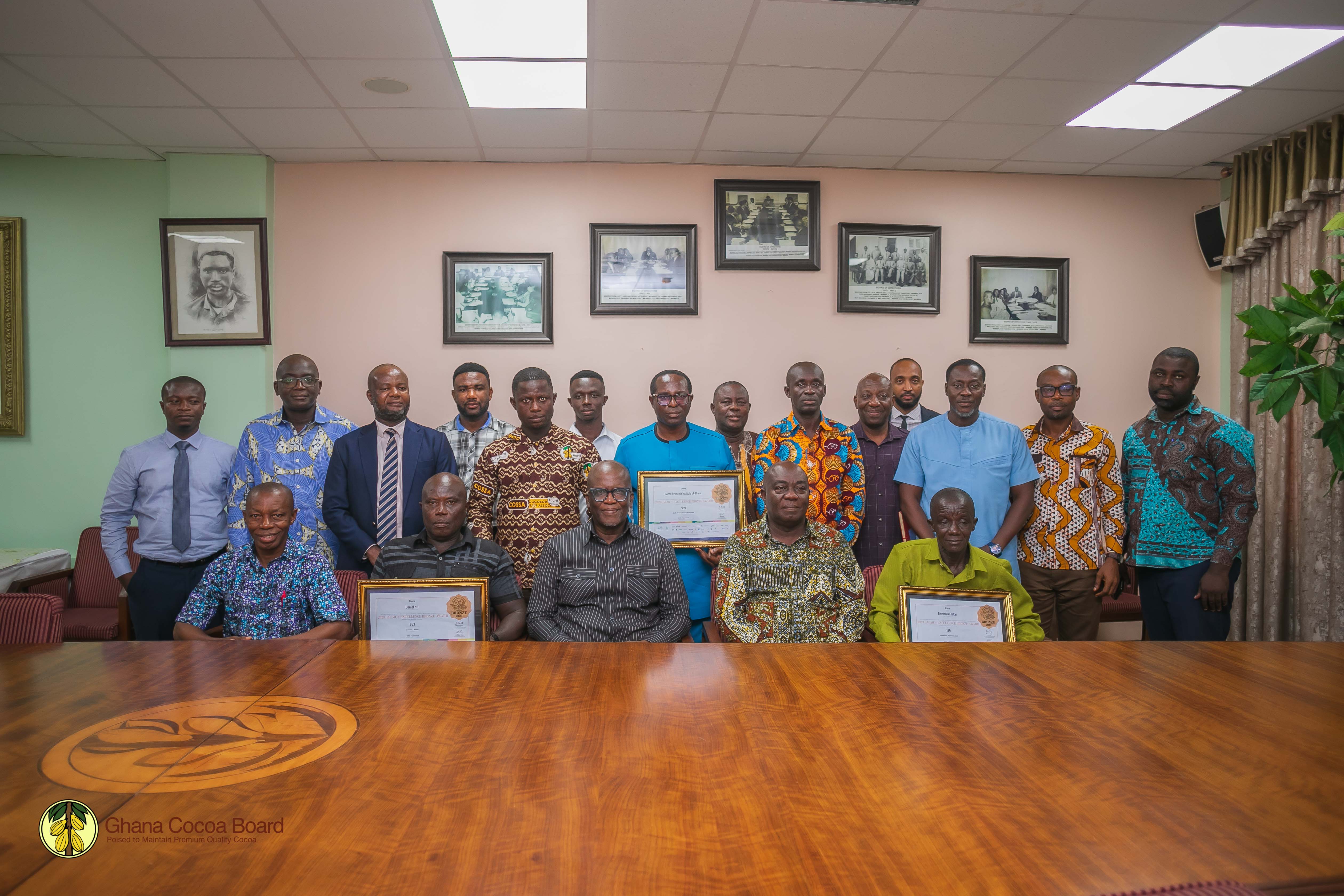COCOA PRODUCER PRICE ADJUSTMENT: PROGRESS AMID COMPLEX REALITIES

Date: 12th August 2025
By Benjamin T. Larweh
On August 4, 2025, the Minister for Finance and Chairman of the cocoa Producer Price Review Committee (PPRC), Dr. Cassiel Ato Forson, announced a revised producer price for cocoa, marking a significant effort to reward Ghanaian cocoa farmers amid evolving global market dynamics. For the 2025/26 Crop Season, the producer price has been set at US$5,040 per tonne, up from US$3,100 per tonne in the 2024/25 season. This represents a 62.58% increase in dollar terms.
In cedi terms, the new price translates to GH₵51,660 per tonne, a slight increase from GH₵49,600. Per bag (64 kg), farmers will now receive GH₵3,228.75, compared to GH₵3,100 last season. Notably, farmers’ share of the Free-on-Board (FoB) price has increased to 70%, up from 63.9%.
While these figures are encouraging on the surface, a closer analysis reveals important nuances that warrant careful consideration.
A Mixed Bag: Gains Tempered by Exchange Rate Dynamics
The increase in the dollar value of cocoa reflects positive global market trends including limited supply and rising demand. However, the recent appreciation of the Ghana cedi against the US dollar (from GH₵16 to GH₵10.25) has dampened the cedi-equivalent prices received by farmers.
To illustrate:
At an exchange rate of ¢16 to US$1, a tonne priced at US$5,040 would have fetched GH₵80,640 (GH₵5,040 per bag).
However, at the current exchange rate of ¢10.25 to US$1, the actual payout is GH₵51,660 per tonne (GH₵3,228.75 per bag).
While the increase in the dollar-denominated price is commendable, the equivalent amount in local currency has not risen proportionally, leaving some farmers with mixed feelings about the actual value of the announced increase.
Other Interventions to Support Cocoa Farmers
To make cocoa farming more profitable and sustainable, the upcoming season will witness a suite of essential support measures:
1. Reintroduction of:
Free cocoa fertilizers (available in both liquid and granular forms)
Free insecticides
Free spraying machines
Free fungicides, and
Free flower inducers
These interventions are designed to significantly reduce production costs, increase productivity, and enhance farm income over time.
2. Ghana Cocoa Traceability System
Starting in the 2025/2026 crop season, COCOBOD will implement the Ghana Cocoa Traceability System. This system will ensure that cocoa produced in Ghana can be traced from the farm to the port of shipment.
The Traceability System will help Ghana fully comply with the European Union Deforestation Regulation, which takes effect on December 31, 2025, and ensure that the country’s cocoa is traceable, deforestation-free, child labour-free, and compliant with international sustainability standards.
3. Tertiary Education Scholarship Scheme for Children of Cocoa Farmers
Beginning in the 2026/27 academic year, COCOBOD will introduce a scholarship programme to support tertiary education for the children of cocoa farmers, thereby promoting social mobility and enhancing long-term household resilience.
4. Refocus on Core Mandate and Implement Structural Reforms
To further streamline operations and improve efficiency, COCOBOD will focus exclusively on its core mandate of supporting cocoa production and promoting farmer welfare. It will transfer all ongoing cocoa road projects to the Ministry of Roads and Highways and amend the Ghana Cocoa Board Act to prohibit COCOBOD from engaging in quasi-fiscal activities.
These steps will firmly place COCOBOD on the path to recovery and ensure that resources are directed toward the cocoa sector's most critical needs.
Stakeholder Reactions: Applause, with Reservations
Some sections of farmers have welcomed the price increase, particularly the improved share of the FOB price. This represents a significant policy victory for advocates who have long called for more equitable pricing that reflects farmers’ contributions to the cocoa value chain.
However, there have also been calls for greater transparency regarding how exchange rates affect final payouts, as well as for robust interventions that protect farmers from macroeconomic shocks such as currency fluctuations and inflation.
The Way Forward: Building a Resilient Cocoa Economy
The Need to Stabilize the Macroeconomic Environment
The government must work collaboratively to ensure long-term currency stability, as volatile exchange rates directly impact farmers’ earnings and livelihood security.
Promotion of Local Cocoa Value Addition
COCOBOD has demonstrated a strong interest in collaborating with private sector investors to increase domestic processing to approximately 50% of the country’s annual cocoa output. By investing in local processing and chocolate manufacturing, Ghana can capture greater value along the cocoa value chain and reduce its heavy reliance on raw bean exports.
Deepening Farmer Support Programmes:
The reintroduction of free fertilizers and inputs, along with the scholarship scheme and traceability system, will be implemented transparently and efficiently. This will undoubtedly ensure that all eligible farmers benefit from these support systems.
Enhanced Communication and Transparency
Farmers will continue to receive clear, timely information about how prices are determined, how inputs are distributed, and how compliance systems affect them. Every major policy rollout should ideally be accompanied by a clear communication strategy.
Conclusion: Commendable Progress with Challenges Ahead
The 2025/26 cocoa producer price adjustment, combined with expanded support interventions, represents yet another bold step toward equity and farmer welfare in Ghana’s cocoa sector. It signals COCOBOD’s responsiveness to global market trends and the persistent calls of cocoa farmers for fair pricing, input support, and sustainability.
However, to achieve lasting prosperity, it is crucial for all stakeholders to collaborate in addressing the underlying structural and economic issues that continue to undermine farmers' earnings. The current challenge is to consolidate these gains, implement interventions effectively, communicate transparently, and co-create a future where Ghana’s cocoa farmers are not merely producers but influential economic agents within a globally competitive value chain.
Disclaimer:
The views expressed in this article are solely those of the author in his personal capacity and do not necessarily reflect the official position of the Ghana Cocoa Board.
Other News / Articles you might be interested in.

COCOBOD MANAGEMENT AND SENIOR STAFF PAY CUT
The Executive Management and the Senior Staff of COCOBOD have, effective today, Monday, ...
Read More
PRESS RELEASE ON COCOA SECTOR REFORMS FOR FINANCIAL VIABILITY AND LONG-TERM SUSTAINABILITY
A. BACKGROUND AND CONTEXT OF THE CURRENT SITUATION 1. On Wednesday, 11th February, 2026, ...
Read More
COCOBOD HONOURS GHANAIAN COCOA FARMERS FOR EXCELLENCE AT INTERNATIONAL COCOA AWARDS
Management of Ghana Cocoa Board (COCOBOD) has honoured the winners of the 2023 International ...
Read More